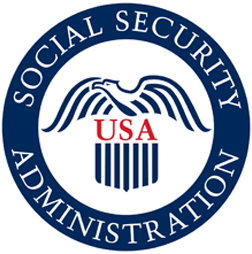Community Partners
The Ticket to Work legislation authorized the Social Security Administration to provide funding for two community-based programs to assist beneficiaries with disabilities in their return to work efforts.
The Work Incentives Planning and Assistance (WIPA) projects are community-based organizations that receive funding from Social Security to assist beneficiaries in making informed decisions about work and to support working beneficiaries in making successful transitions to economic self-support. WIPA services are free. WIPA staff, referred to as Community Work Incentives Coordinators (CWICs), are certified benefits planners who provide beneficiaries information about work, Social Security work incentive programs and rules, and other types of benefits and assistance available in their states. CWICs are available to:
- provide in-depth counseling about benefits and the effect of work and/or earned income on those benefits;
- conduct outreach to beneficiaries who are potentially eligible to participate in Federal and/or state work incentive programs;
- work in cooperation with Federal, state and private agencies and nonprofit organizations that serve beneficiaries with disabilities. CWICs also assist beneficiaries in finding resources and services to achieve their employment goals. Locate the WIPA serving your area by visiting the Find Help tool.
Find more information and a list of current WIPA projects at https://www.ssa.gov/work/WIPA.html.
Funding for the Protection and Advocacy for Beneficiaries of Social Security (PABSS) program is provided to State Protection and Advocacy (P&A) Systems in all 50 states, the District of Columbia, five U.S. territories, and the Navajo and Hopi reservations in Arizona, New Mexico and Utah. The P&A network is the largest provider of legally-based advocacy services for individuals with disabilities in the United States. PABSS services are free. They include:
- securing services for beneficiaries from community agencies, including Employment Networks providing services under the Ticket Program;
- helping people who are entitled to benefits understand work incentives and issues with their disability benefits;
- protecting beneficiaries' rights regarding conditions of employment;
- helping beneficiaries understand and protect their employment rights, responsibilities and reasonable accommodations under the Americans with Disabilities Act and other applicable laws;
- protecting rights to transportation and access to housing assistance;
- assisting beneficiaries in obtaining vocational rehabilitation and employment-related services and supports.
PABSS staff can assist beneficiaries who have received overpayment notices if the overpayment was due to work and earnings and repayment constitutes an impediment to work. Find the P&A serving your area by visiting the Find Help tool.

